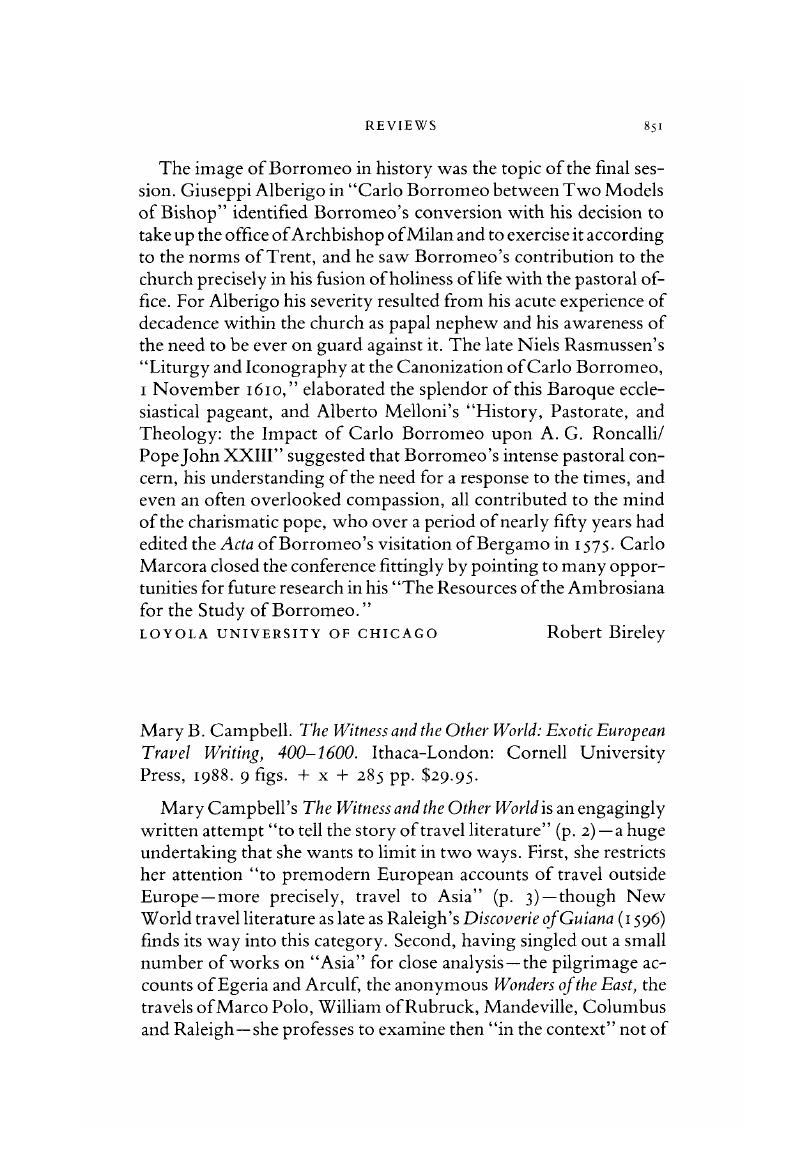Article contents
Mary B. Campbell. The Witness and the Other World: Exotic European Travel Writing, 400-1600. Ithaca-London: Cornell University Press, 1988. 9 figs. + x + 285 pp. $29.95.
Review products
Published online by Cambridge University Press: 20 November 2018
Abstract

- Type
- Reviews
- Information
- Copyright
- Copyright © Renaissance Society of America 1989
References
1 In Campbell's own writing, the formal correlative to this aesthetic ahistoricism is the literary allusion. For example, the sublime relativism of Mandeville excites in Campbell an answering pastiche of Stevens, Marvell, and Milton:
Mandeville has rendered the places and peoples that once belonged to [the Otherworld] as “part of nature, part of us.” He has rolled all that truly Otherworldy sweetness up into one ball and perched it at “the begynnynge of the erthe,” beyond a veil of darkness, at the place where time began for us, and all our woe—at the place and moment of our birth (p. 161).
- 1
- Cited by


